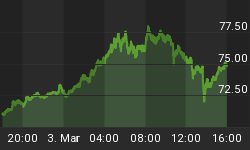"Well, God knows you don't need any brains to buck barley bags..." - John Steinbeck, Of Mice & Men (1937)
ALPHA used to be what hedge-fund managers promised their clients.
Better still, portable alpha - defined in the easy bed-time reading of finance MBAs as the "generation of excess return over a benchmark while maintaining the desired asset allocation to traditional market exposures" - offered to meet and beat whatever returns everyone else was making, thus proving the manager's genius and justifying his infamous fees.
One-and-twenty? Two-and-thirty? By early 2006, SAC Capital Advisors (minimum investment, $25 million) were rumored to be charging 3% of client assets each year, plus 35% of their gains. Come Oct. 2007, and almost two months after the credit bubble began gushing air "some of the industry's most exclusive hedge funds charge a performance as high as 50%," said Reuters.
Now add the cost of audits, account administration, and even trader bonuses, reported LJH Global Investments, a Florida-based adviser, and those annual fees - win or lose - could rise by another 3.5%.
Here's hoping all that alpha was worth the price. But now? With credit lines shut down at the investment banks? With margin calls hiked so high that - here in London at least - the money held by brokers, exchanges and clearing houses has risen to 43% of the UK's entire cash deposits, up from the 10-year average of 26%...?
Might as well climb into your denim dungarees now, and start watching that blackboard for a shot at getting a work card to buck barley bags. Because whatever the Great Inflation of money and credit did for world trade between 1997 and 2008, it's clearly ended with a deflationary slump for Mayfair and Connecticut's finest.
"Hedge funds worldwide shrank by 9% to $1.56 trillion last month," reports Bloomberg, "the lowest level in two years, after investors withdrew cash and stock markets declined.
"Investors pulled $40 billion from hedge funds in October, according to Chicago-based Hedge Fund Research Inc., while market losses cut industry assets by $115 billion."
On a returns-to-investment basis, hedge funds lost their clients 6% last month, taking the year-to-date loss to 16%, says HFRI. Oh sure, that still means they're delivering alpha over and above the stock market...now down by nearly one-half to an 11-year low on the S&P index.
But only one-in-six wealthy investors now believes hedge funds can offer "strong returns" in the current environment, said a survey this week from the Association of Investment Companies (AIC).
Maybe making money - once easy, now hard - is just going to prove so tough, applying PhD mathematics and leverage will only make things worse. Maybe the hedgies should start seeking alfalfa instead.
"The great universities find that when their outstanding economic teachers are called into the business arena, the result is pitiful not only for business but for the teachers," wrote Robert L.Smitley in his Popular Financial Delusions, four years before John Steinbeck would damn generations of high-school students to dust-bowl misery with Of Mice & Men.
"It seems to be almost impossible to strike a happy medium," Smitley went on, writing when $1 was worth $20 in today's money, "the way [these] $3,500 boys accepted $30,000 a year jobs with the Investment Trusts back in 1928 and 1929 and found themselves earning a pittance as hack writers in 1933...writing daily columns forecasting the stock prices and estimating the wheat crop."
There are some...ummm...hacks, of course, who missed out on this bubble's $600,000-a-year jobs. And after scribbling our daily columns and forecasting precisely this blow-up in complex, over-paid finance, no doubt irony has got a special treat in store for us, too...flooding the market for financial hacks with over-qualified wannabees desperate to work.
Still, at least a few of us already own Gold. In a world shorn of credit, leverage and PhD finance, a lump of dumb metal may well prove worth having.
















